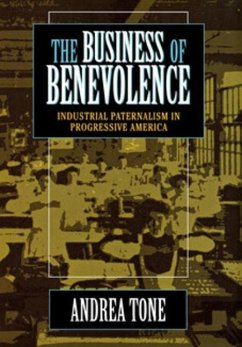In the early twentieth century, an era characterized by unprecedented industrial strife and violence, thousands of employers across the United States pioneered a new policy of labor relations called welfare work. The results of the policy were paternalistic practices and forms of compensation designed not only to control workers, but also to advertise the humanity of corporate capitalism to thwart the advance of legislated reform. In a burgeoning literature on the development of the U.S. welfare state, Andrea Tone offers a new interpretation of the importance of welfare capitalism in shaping its development.
Dieser Download kann aus rechtlichen Gründen nur mit Rechnungsadresse in A, D ausgeliefert werden.









